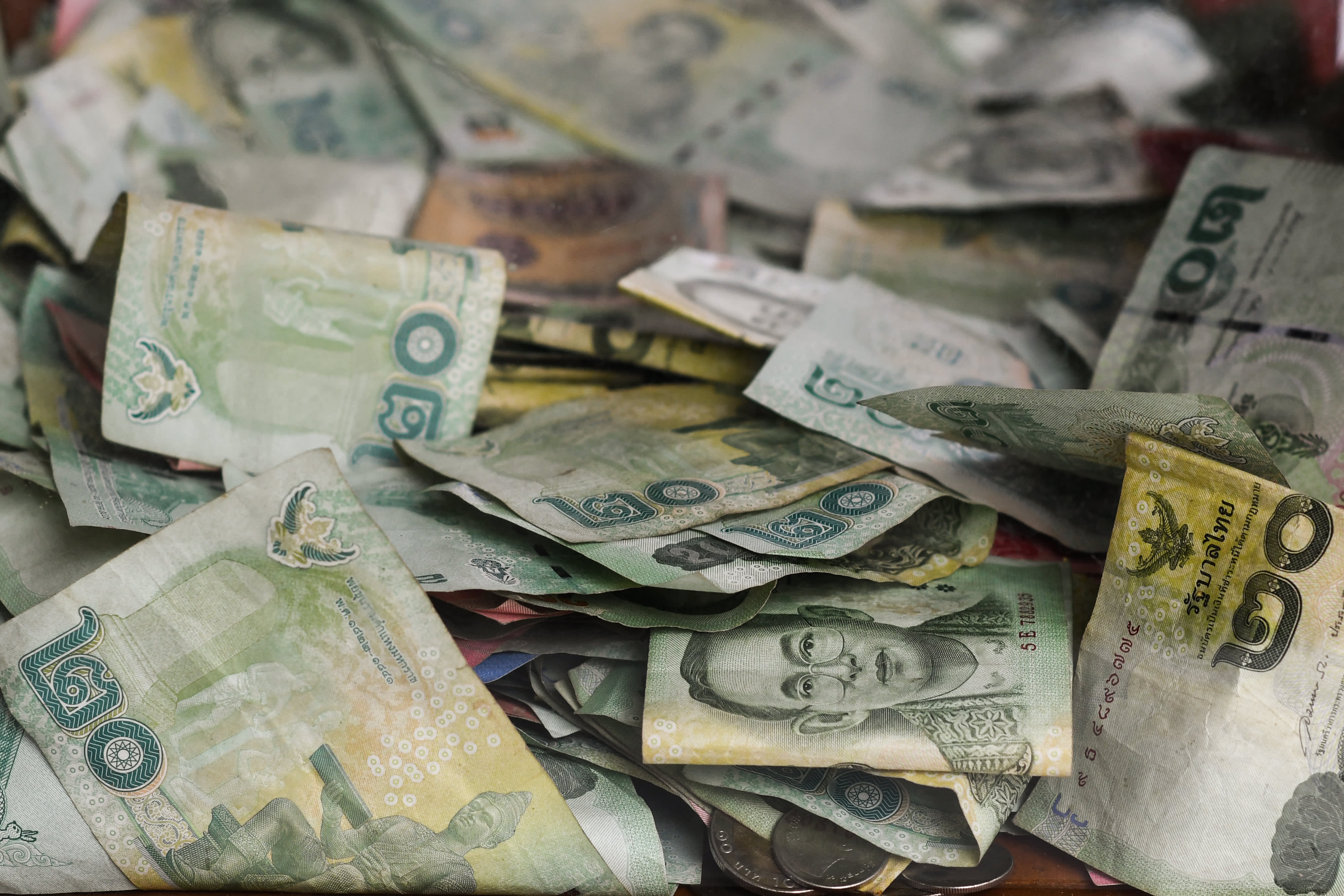
The Thai baht has flipped from Asia’s strongest currency in 2019 to one of the region’s worst performing this year, following an outbreak of a new coronavirus that originated from China.
The Thai currency has lost around 4.1% against the U.S. dollar so far this year, reversing almost half of its 7.9% gains against the greenback in 2019.
In a bid to boost the Thai economy, the country’s central bank, the Bank of Thailand, on Wednesday unexpectedly cut its policy rate to an all-time low, and cited the virus spread as one reason that will drag down growth.
Trinh Nguyen, senior economist at French investment bank Natixis, said on Thursday the second-largest economy in Southeast Asia has been too dependent on external demand,” particularly that from China.
Nguyen told CNBC’s “Squawk Box Asia” that tourism revenue from China accounts for around 2.7% of Thailand’s gross domestic product, while exports to China make up some 6% of the country’s GDP.
“We know with absolute certainty that the tourism hit will be there,” she said, adding that exports are also likely to be “another downward drag” on Thailand’s roughly $500 billion economy.
“This is why we slashed GDP forecast to only 2.2% this year and that means that Thailand is very short of the World Bank target of 5% if it wants to reach high income status in about a decade,” said Nguyen.
The spread of a new coronavirus, believed to have originated from the Chinese city of Wuhan, has led authorities in China to quarantine multiple cities, shut down business hubs by extending the Lunar New Year holidays and ban overseas group tours.
China is the world’s largest outbound travel market and Thailand received 10.5 million Chinese travelers in 2018 — fewer than Hong Kong and Macao, according to data by China Outbound Tourism Research Institute.
The Thai Tourism Ministry estimated that reduced tourists from China could result in 50 billion baht ($1.61 billion) of lost revenue, reported Reuters.
Thailand needs to be more competitive
Such a drag from the tourism sector is an added concern to an already fragile Thai economy, and the central bank will likely have to cut interest rates again to boost growth, several economists said.
“We don’t think one rate cut will be enough in preventing the growth slowdown, let alone boosting growth,” Prakash Sakpal, Asia economist at Dutch bank ING, wrote in a Wednesday note.
“We believe the (Bank of Thailand) would want to remain ahead of the curve in its policy response to the evolving situation. If so, another cut at the next meeting in March makes more sense as a timely, and probably more effective, boost to the economy,” he added.
But over the longer term, Thailand must make its economy more competitive — and the virus outbreak could be an opportunity to reduce its reliance on “volatile sectors” like tourism, said Nguyen.
“I think they need to invest more, it’s a question of investing where,” she said, explaining that the Thai economy needs to “diversify income sources so that Thailand can itself generate its own growth.”
“Otherwise, they’re stuck in a trap where despite everything that they do, they cannot generate sustained domestic demand particularly investment and consumption,” she added.



